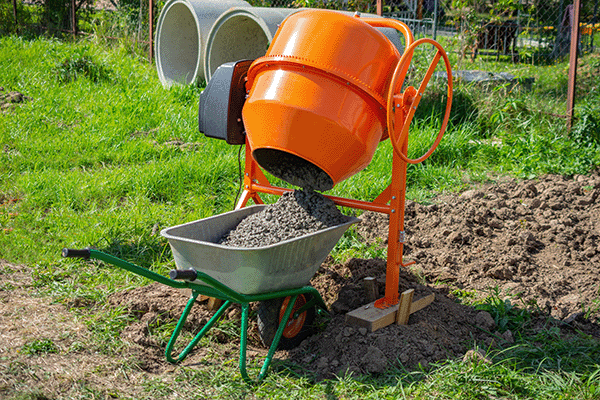Partner with Downstream

A solid foundation is the backbone of any construction project, and choosing the right concrete mixer is a crucial part of that process. Whether you’re laying a simple backyard patio or managing the concrete flow for a high-rise development, the efficiency of your mixer can determine the speed, quality, and cost-effectiveness of your build. But with so many options available, selecting the best mixer for your specific needs can feel overwhelming. This guide will walk you through the different types of concrete mixers, key factors to consider, and how to make the smartest decision for your jobsite.

When it comes to construction, laying a solid foundation is critical—both literally and figuratively. Whether you're working on a small DIY project or managing a large-scale jobsite, choosing the right concrete mixer can make or break your workflow. The right mixer ensures efficiency, consistency, and cost savings, while the wrong one can lead to wasted materials and lost productivity.
So, how do you pick the right mixer for your jobsite? Let’s break it down.

Not all mixers are created equal. The right choice depends on the scale of your project, the type of materials you’re working with, and how often you’ll need to mix concrete. According to the National Ready Mixed Concrete Association (NRMCA), improperly mixed concrete can lead to weak structural integrity, increasing the risk of costly repairs and safety concerns. Understanding the different types of mixers available can help you make an informed decision that aligns with your specific project needs.
1. Barrel Mixers (Drum Mixers)
These are the most common types of concrete mixers, recognized for their rotating drum that mixes materials by continuously turning. The drum mixer is a popular choice because of its simple design, ease of use, and cost-effectiveness. They are available in both electric and gas-powered versions, providing options for different power requirements on the jobsite.
Pan mixers use a stationary pan and rotating blades to mix materials more consistently than drum mixers. These mixers are particularly useful for specialized concrete applications where a high degree of uniformity is required. They are often used in precast concrete operations, producing high-quality mixes with less effort compared to traditional drum mixers.
These heavy-duty mixers are mounted on trailers, making them easy to transport between different jobsites. Towable mixers are available in gas or diesel versions, offering greater power for mixing large batches of concrete. They are often used in infrastructure projects, road work, and larger commercial construction jobs.
Volumetric mixers allow you to customize your mix on-site by adjusting the water, cement, and aggregate ratios in real time. These mixers are equipped with separate compartments for each ingredient, allowing operators to create precise mixes tailored to specific job requirements. They are often used in projects that require on-demand mixing to reduce material waste and improve efficiency.
Consider how much concrete you’ll need per batch. A small electric drum mixer might work for home improvement projects, while a towable or volumetric mixer is better suited for larger construction sites where high-volume mixing is necessary. If you anticipate a continuous need for fresh concrete, a mixer with a larger drum capacity or a volumetric mixer might be a better investment.
If you’re working in tight spaces, a compact electric mixer might be your best bet. These mixers are lightweight, easy to maneuver, and perfect for indoor applications. If mobility is a priority, a towable mixer can be easily transported between sites, making it a better choice for contractors who need flexibility in their operations.
Higher-powered mixers can reduce mixing time and keep your project moving at a steady pace. If speed is critical, look for a high-torque motor or a volumetric mixer for on-demand mixing. Faster mixing means less downtime and greater overall productivity on the jobsite.
Investing in the right mixer can save you money in the long run. Consider whether renting a mixer might be more cost-effective than buying one, especially for short-term projects. Buying a mixer is a significant investment, but for contractors who frequently mix concrete, it may be more economical in the long run.
Choosing the right mixer is a game-changer for your jobsite. By considering project size, power options, portability, and cost, you can ensure you get the best performance and efficiency for your needs. And if you’re not ready to invest in buying a mixer, renting from Downstream is a smart, hassle-free solution.
No matter what your job demands, having the right equipment will keep your project on solid ground—literally.
At Downstream, we offer a wide range of jobsite mixers for rent, from electric drum mixers to heavy-duty volumetric mixers. Our rental solutions give you the flexibility to choose the right equipment without the upfront investment of purchasing a mixer outright.
Ready to get started? Browse our available mixers here and find the perfect fit for your jobsite.
-min.webp)
Quis nostrud exercitation ullamco laboris nisi ut aliquip ex ea commodo consequat. Duis aute irure dolor in voluptate.
